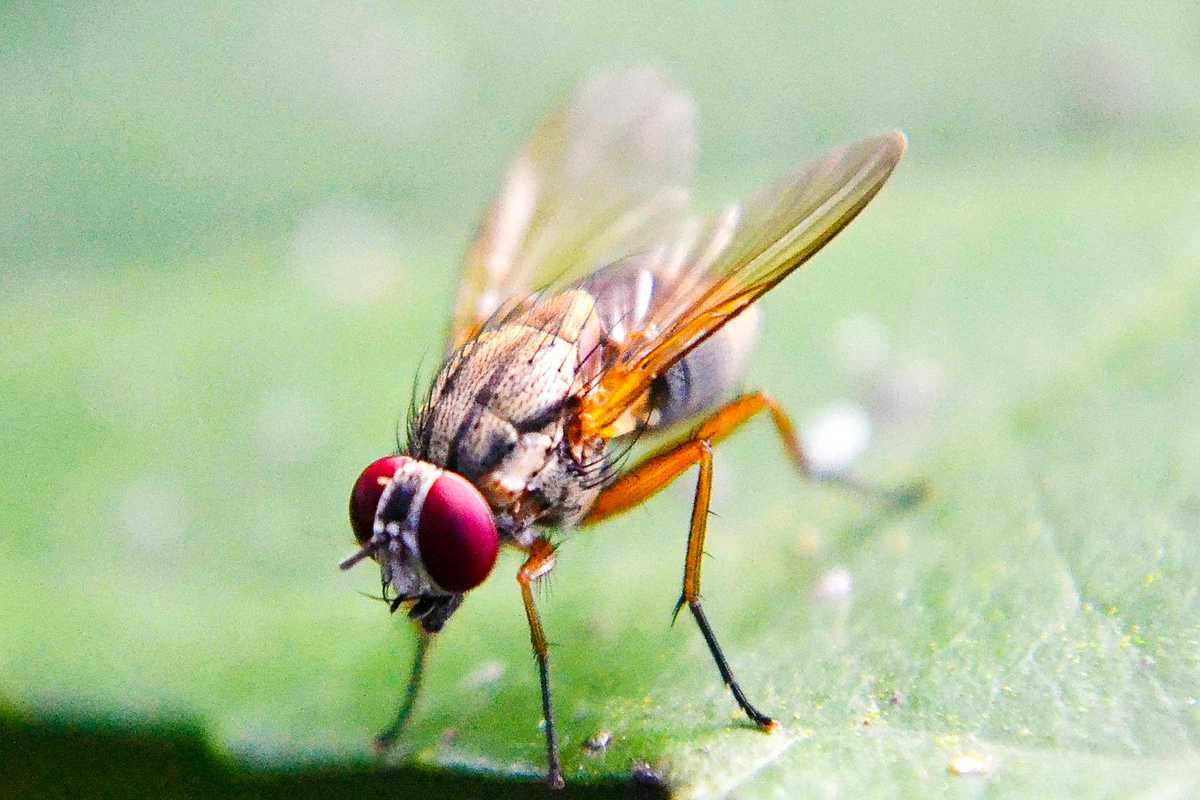
New research proves that fruit flies also respond to scents in their sleep.
When we humans sleep, there are really only two kinds of stimuli that we respond to. Namely: quantitative and qualitative information. With the first term, researchers refer to stimuli that do not require extensive processing in the brain, such as a slap in the face or a loud noise. Qualitative information, on the other hand, does require some (unconscious) processing in the brain before we respond or not. A good example of this is soft wails in the distance, where the brain first has to determine whether it is one of the children (and we should therefore wake up) or not.
New research
We humans can therefore also respond in our sleep to stimuli that first have to be interpreted by our brain. And until recently, we seemed to be quite unique in that regard. But a new study is changing that. Scientists have shown for the first time that the brains of other sleeping organisms can also interpret information. That can be read in the magazine Nature.
fruit fly
“Sleep makes you vulnerable,” said researcher Alice French. “That’s why animals – including humans – must be able to respond to potential threats, so that they can wake up and take action. If it’s a sound — like a loud bang — the processing that goes on in our brain is pretty simple. But actively interpreting sounds and smells around us that may or may not be relevant to us requires other parts of the brain to remain alert. And now in fruit flies — which have more in common with us than you might think — we’ve discovered a brain region that stays awake to process odors.”
bad smells
The researchers placed thousands of fruit flies in individual tubes and monitored them using an automatic camera system. As soon as the cameras determined that the fruit flies were asleep, a scent was sprayed into their tube, after which the cameras recorded whether the fruit flies woke up or not. The researchers tested different odors and discovered that the flies woke up more often when a foul odor was released into their tube.
In the brain
During the experiment, the researchers also checked what happened in the brains of the flies. They injected the flies with a fluorescent substance that lit up when a nerve cell became active. This allowed them to track exactly which part of the brain of sleeping fruit flies remains alert and processes the odors. To make sure this brain region stays awake, the researchers turned off some of the glowing neurons, after which the sleeping fruit flies were indeed unable to detect odors.
Circumstances
It is of course very interesting that fruit flies can react to smells in their sleep. But it also raises the question of whether they always do that or whether it depends on their circumstances. The researchers decided to find out by adjusting the conditions of some fruit flies. For example, some fruit flies were not fed for a day, while others were kept awake, making them very tired. And still other fruit flies were fed drunk. They were then put back into a tube to go to sleep and – once the fruit flies were under sail – a scent was pumped into the tube. The experiment shows that drunk and overtired fruit flies were less sensitive to the odors. Meanwhile, the starving fruit flies reacted much more strongly to odors that were food-related.
The research not only provides more insight into the life of fruit flies; scientists hope it can also help us uncover the still shrouded function of sleep. “While you sleep, you are vulnerable to predators and cannot gather or mate for food,” said study researcher Giorgio Gilestro. And despite all those drawbacks, all animals sleep. “So it must be very important, but we don’t know why.” However, the fruit fly offers hope. “Fruit flies are the ideal model animals because they exhibit complex behaviors – such as sleep – but have relatively simple brains, which allow us to explore the roots of this common behavior. But even among fruit flies, different species have different sleeping and waking needs. Studying how different animals balance these different needs can help us determine what the ultimate function of sleep is.”
Source material:
““Is that a bacon sandwich?” – Fruit flies react to smells while asleep” – Imperial College London
Image at the top of this article: Nuzree (via Pixabay)